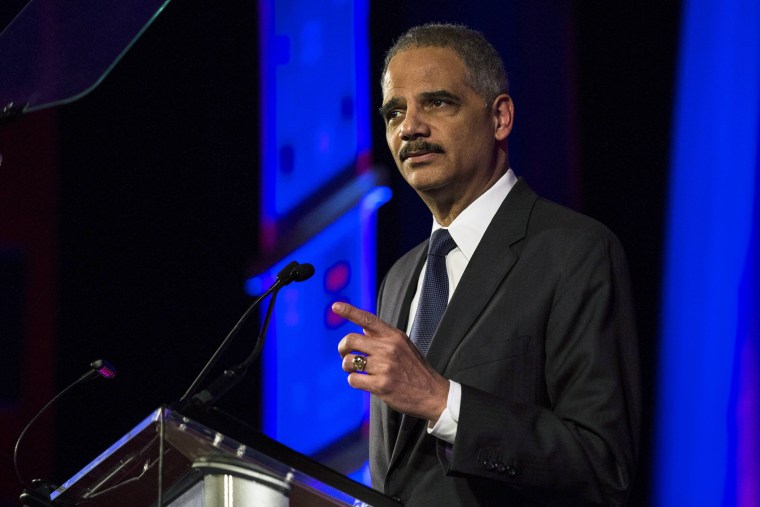Disenfranchisement of the formerly incarcerated is unnecessary, unjust and counterproductive, Attorney General Eric Holder told an audience at the Georgetown University Law Center on Tuesday. "At worst, these laws, with their disparate impact on minority communities, echo policies enacted during a deeply troubled period in America's past – a time of post-Civil War discrimination," Holder said. "And they have their roots in centuries-old conceptions of justice that were too often based on exclusion, animus and fear." Holder's remarks were made at a bipartisan criminal justice symposium held by the Leadership Conference for Civil and Human Rights.
When the votes are tallied in Virginia's race for governor on Tuesday, over 300,000 citizens will be missing from the voting rolls – including 20% of the state's black population. The reason is not low turnout or voter ID, but a growing and often invisible barrier to voting that is upending elections around the country. Over 5 million Americans are barred from voting because they have criminal records, according to a report this year from the Sentencing Project. The crackdown on ballot access is so intense, a majority of states actually bar former convicts from voting even after they are released from prison. If voting rights were restored to those former inmates, about 4.3 million more Americans would be able to vote. That is over three times margin of victory in the last House midterm elections.
